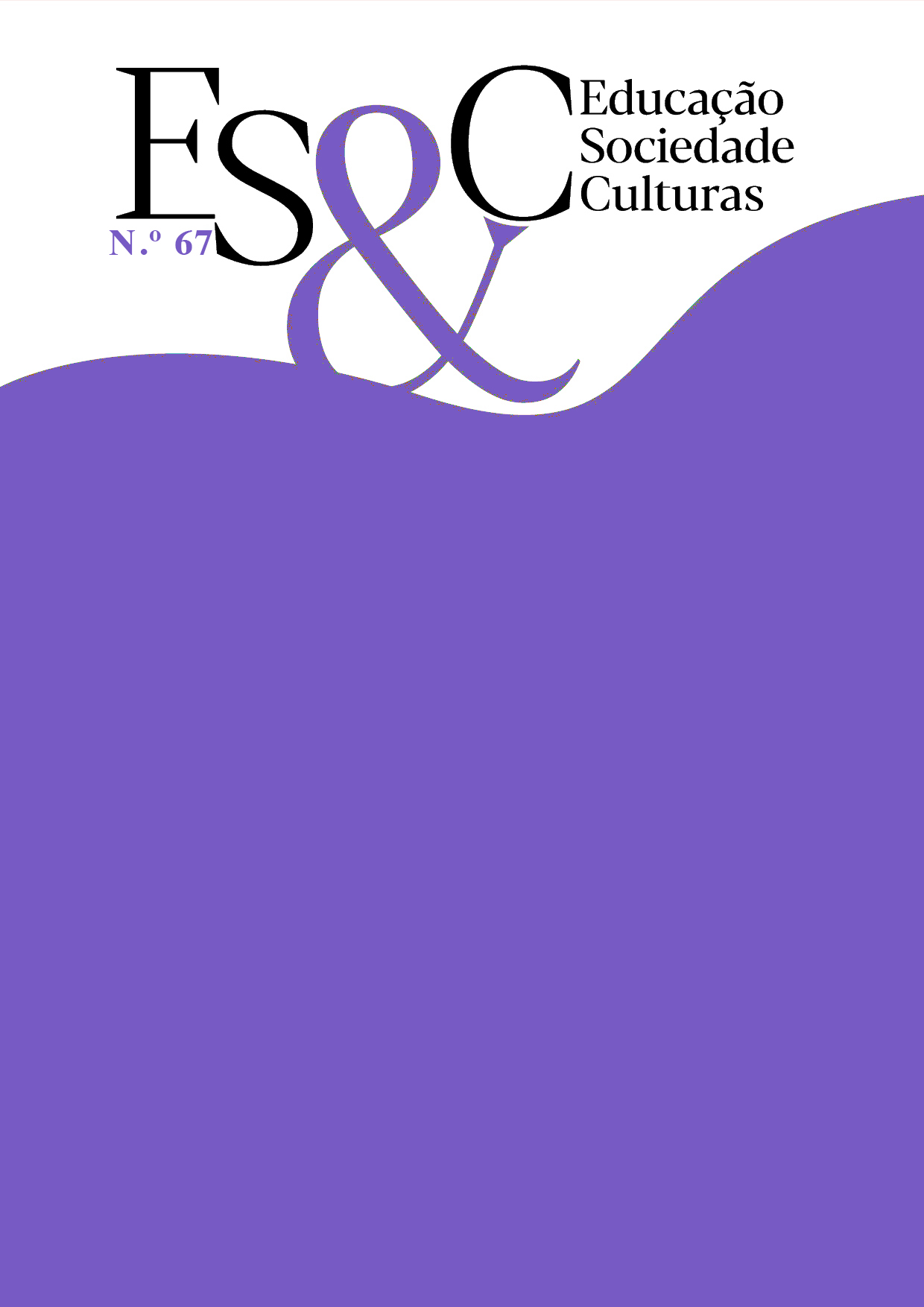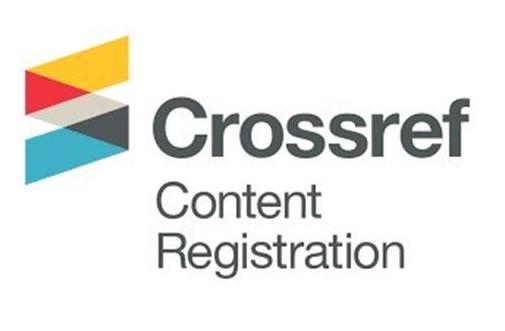How are early years teachers in Portugal being prepared to teach reading and writing?
DOI:
https://doi.org/10.24840/esc.vi67.780Keywords:
Language Structure, Writing system and orthography, Reading and writing, Teacher training, Research and teachingAbstract
The teaching of reading and writing requires teachers who are adequately prepared. Higher education institutions provide teacher training and are responsible for pursuing the desired quality. The aim of the current study was two-fold: it examined how prospective teachers are trained to teach reading and writing and analysed the research experience of the higher education staff that provide this training. We examined the teacher preparation curricula offered by Portuguese institutions and the course topics that focused on Portuguese reading and writing acquisition. Interviews were conducted with 25 professors who either oversaw the teacher training programs or assisted in instructing some of these courses. Overall, teacher education and training programs lacked a thorough and comprehensive examination of the language. There was no evidence of study of the relation between oral and written language, as well as of the distinctive features of the Portuguese orthographic code. Some relevant scientific research in education and psycholinguistics was absent. Lastly, there was a dearth of research to support education and training: the number of published papers devoted to the study of Portuguese, reading and writing was low.
Downloads
References
Agud, Ingrid, & Ion, Georgeta (2019). Research-based learning in initial teacher education in Catalonia. CEPS Journal, 9(2), 99–118. https://doi.org/10.26529/cepsj.564
Amaral, Alberto (Coord.), Magalhães, António (Org.), Caramelo, João, Cardoso, Sónia, Rocha, Cristina, Sin, Cristina, Tavares, Orlanda, Vaz, Henrique, Veiga, Amélia, & Videira, Pedro (2016). Que perceções têm os portugueses sobre o valor da educação? Fundação Belmiro de Azevedo.
Bardin, Laurence (2011). Análise de conteúdo. Edições 70.
Biesta, Gert, & Tedder, Michael (2006). How is agency possible? Towards an ecological understanding of agency-as-achievement. Learning lives: Learning, identity, and agency in the life course (Working Paper Five). Teaching and Learning Research Programme.
Böttcher-Oschmann, Franziska, Ophoff, Jana, & Thiel, Felicitas (2021). Preparing teacher training students for evidence-based practice promoting students’ research competencies in research-learning projects. Frontiers in Education, Article 642107. https://doi.org/10.3389/feduc.2021.642107
Cao, Yanling, Postareff, Liisa, Lindblom-Ylänne, Sari, & Toom, Auli (2021). A survey research on Finnish teacher educators’ research-teaching integration and its relationship with their approaches to teaching. European Journal of Teacher Education, 46(1), 171–198. https://doi.org/10.1080/02619768.2021.1900111
Castles, Anne, Rastle, Kathleen, & Nation, Kate (2018). Ending the reading wars: Reading acquisition from novice to expert. Psychological Science in the Public Interest, 19(1), 5–51. https://doi.org/10.1177/1529100618772271
Cochran-Smith, Marilyn, Grudnoff, Lexie, Orland-Barak, Lily, & Smith, Kari (2020). Educating teacher educators: International Perspectives. The New Educator, 16(1), 5–24. https://doi.org/10.1080/1547688X.2019.1670309
Coe, Robert, Aloisi, Cesare, Higgins, Steven, & Major, Lee E. (2014). What makes great teaching? Review of the underpinning research. Sutton Trust. http://www.suttontrust.com/researcharchive/great-teaching/
Conselho Nacional de Educação. (2019). Regime de seleção e recrutamento do pessoal docente da educação pré-escolar e ensinos básico e secundário. Conselho Nacional de Educação.
Czerniawski, Gerry, Guberman, Ainat, & MacPhail, Ann (2017). The professional developmental needs of higher education-based teacher educators: An international comparative needs analysis. European Journal of Teacher Education, 40(1), 127–140. https://doi.org/10.1080/02619768.2016.1246528
Darling-Hammond, Linda (2021). Defining teaching quality around the world. European Journal of Teacher Education, 44(3), 295–308. https://doi.org/10.1080/02619768.2021.1919080
Englert, C. S., Mariage, T. V., Truckenmiller, A. J., Brehmer, J., Hicks, K., & Chamberlain, C. (2020). Preparing special education preservice teachers to teach phonics to struggling readers: Reducing the gap between expert and novice performance. Teacher Education and Special Education, 43(3), 235–256. https://doi.org/10.1177/0888406419863365
European Commission. (2014). Council conclusions of 20 May 2014 on effective teacher education (2014/C 183/05). European Commission.
Graham, Steve, Harris, Karen R., & Santangelo, Tanya (2015). Research-based writing practices and the common core: Meta-analysis and meta-synthesis. The Elementary School Journal, 115(4), 498–522. https://doi.org/10.1086/681964
Griffiths, Vivienne, Thompson, Simon, & L. Hryniewicz, Liz (2014). Landmarks in the professional and academic development of mid-career teacher educators. European Journal of Teacher Education, 37(1), 74–90. https://doi.org/10.1080/02619768.2013.825241
Gustafsson, Jan-Eric (2016). Lasting effects of quality of schooling: Evidence from PISA and PIAAC. Intelligence, 57(1), 66–72. https://doi.org/10.1016/j.intell.2016.05.004
Gutman, M. (2021). From teacher to senior teacher educator: Exploring the teaching-research nexus in Israeli academic colleges of education. Journal of Education for Teaching, 47(3), 439–453. https://doi.org/10.1080/02607476.2021.1886570
Hanushek, Eric A., & Woessmann, Ludger (2011). The economics of international differences in educational achievement. In Eric A. Hanushek, Stephen Machin, & Ludger Woessmann (Eds.), Handbooks in Economics (Vol. 3, pp. 89–200). Elsevier. https://doi.org/10.1016/B978-0-444-53429-3.00002-8
Hudson, Alida K., Moore, Karol A., Han, Bing, Koh, Poh W., Binks-Cantrell, Emily, & Joshi, R. Malatesha (2021). Elementary teachers’ knowledge of foundational literacy skills: A critical piece of the puzzle in the science of reading. Reading, Research Quarterly, 56(S1), S287–S315. https://doi.org/10.1002/rrq.408
Leite, Carlinda (2019). Teaching, learning and research: An analysis of the academic and political agenda. In M. Helena Pedrosa-de-Jesus, & Mike Watts (Eds.), Academic growth in higher education: Questions and answers (pp. 19–30). Brill Sense.
Leite, Carlinda, Marinho, Paulo, & Sousa-Pereira, Fátima (2023). Teaching-research nexus in initial teacher education in Portugal. Educación XXI, 26(1), 71–92. https://doi.org/10.5944/eduxxx1.31518
Leite, Carlinda, Monteiro, Angélica, Barros, Rita, & Ferreira, Nicole (2022). Prácticas curriculares hacia la sostenibilidad y una pedagogía transformadora curricular. REICE Revista Iberoamericana sobre Calidad, Eficacia y Cambio en Educación, 20(4), 107–125. https://doi.org/10.15366/reice2022.20.4.006
Leite, Carlinda, & Sousa-Pereira, Fátima (2022). Perfil académico e profissional de professores do ensino superior que asseguram a formação inicial de professores. Fundação Belmiro de Azevedo.
Leite, Carlinda, Sousa-Pereira, Fátima, & Marinho, Paulo (2023). Teacher educators in Portugal: What is the research profile? What are the research conditions? El Profesorado, 27(1), 301–320. https://doi.org/10.30827/profesorado.v27i1.25161
Leite, Isabel, Leite, Carlinda, Sousa-Pereira, Fátima, & Lemos, Gina (2022). Como estão a ser preparados os futuros professores para o ensino da leitura e da escrita? EDULOG - Fundação Belmiro de Azevedo. https://www.edulog.pt/publicacao/45
Lopes, Amélia, Boyd, Pete, Andrew, Nicola, & Pereira, Fátima (2014). The research-teaching nexus in nurse and teacher education: Contributions of an ecological approach to academic identities in professional fields. Higher Education, 68(2), 167–183. https://doi.org/10.1007/s10734-013-9700-2
Lourenço, Vanda (Coord.), Duarte, Alexandra, Nunes, Alexandra, Amaral, Ana, Gonçalves, Conceição, Mota, Madalena, & Mendes, Rosário (2019). PISA 2018: Portugal. Relatório nacional. IAVE.
Magalhães, António (2006). A identidade do ensino superior: A educação superior e a universidade. Revista Lusófona de Educação, 7, 13–40.
Mayring, Philipp (2019). Qualitative content analysis: Demarcation, varieties, developments. Forum: Qualitative Social Research, 20(3). https://doi.org/10.17169/fqs-20.3.3343
McCartney, Elspeth, Marwick, Helen, Hendry, Gillian, & Ferguson, Erin (2018). Eliciting student teacher’s views on educational research to support practice in the modern diverse classroom: A workshop approach. Higher Education Pedagogies, 3(1), 342–372. https://doi.org/10.1080/23752696.2018.1498748
McCutchen, Deborah, Abbott, Robert, Green, Laura, Beretvas, S. Natasha, Cox, Susane, Potter, Nina S., Quiroga, Teresa, & Gray, Audra (2002). Beginning literacy: Links among teacher knowledge, teacher practice, and student learning. Journal of Learning Disabilities, 35(1), 69–86. https://doi.org/10.1177/002221940203500106
Melo, M. Julia, Almeida, Lucinalva, & Leite, Carlinda (2023). Negociação das políticas/práticas curriculares: O desenvolvimento profissional de professores(as) orientado para a decisão curricular. Educar em Revista, 39, e87031. http://dx.doi.org/10.1590/1984-0411.87031
Michel, Jessica O., Holland, LeAnn, Ostrow, J., Brunnquell, Claudine, & Sterling, Stephen (2020). The ideal outcome of education for sustainability: Transformative sustainability learning. New Directions for Teaching and Learning, 161, 177–188. https://doi.org/10.1002/tl.20380
Moats, Louisa C. (2020). Teaching reading is rocket science 2020: What expert teachers of reading should know and be able to do. American Federation of Teachers.
Montoya, Silvia (2017). Defining literacy. UNESCO. http://gaml.uis.unesco.org/wp-content/uploads/sites/2/2018/12/4.6.1_07_4.6-defining-literacy.pdf
Morais, José (1997). A arte de ler. Edições Cosmos.
Morais, José (2018). The methods issue revisited: From a developmental and socio-cultural-political perspective. In Thomas Lachmann, & Tina Weis (Eds.), Reading and dyslexia: From basic functions to higher order cognition (pp. 9–25). Springer. https://doi.org/10.1007/978-3-319-90805-2_1
Mullis, Ina, von Davier, Matthias, Foy, Pierre, Fishbein, Bethany, Reynolds, Katherine A., & Wry, Erin (2023). PIRLS 2021 International results in reading. Boston College; TIMSS; PIRLS International Study Center. https://doi.org/10.6017/lse.tpisc.tr2103.kb5342
National Reading Panel. (2000). Teaching children to read: An evidence-based assessment of the scientific research literature on reading and its implications for reading instruction. National Reading Panel.
Nóvoa, António (2019). Entre a formação e a profissão: Ensaio sobre o modo como nos tornamos professores. Currículo Sem Fronteiras, 19(1), 198–208.
Obwegeser, Nikolaus, & Papadopoulos, Pantelis (2016). Integrating research and teaching in the IS classroom: Benefits for teachers and students. Journal of Information Systems Education, 27(4), 249–258. https://aisel.aisnet.org/jise/vol27/iss4/4/
OECD. (2019). Working and learning together: Rethinking human resource policies for schools. OECD Publishing.
Orland-Barak, Lily (2017). Learning teacher agency in teacher education. In Jean Clandinin & Jukka Husu (Eds.), The SAGE handbook of research on teacher education (pp. 139–142). SAGE.
Portela, Miguel (2015). Retornos privados e sociais da Educação em Portugal. In Luís C. Nunes (Coord.), A escola e o desempenho dos alunos (pp. 107–126). Fundação Francisco Manuel dos Santos.
Priestley, Mark, Biesta, Gert, & Robinson, Sarah (2015). Teacher agency: What is it and why does it matter? In Jelmer Evers & René Kneyber (Eds.), Flip the system: Changing education from the bottom up (pp. 134–148). Routledge.
Santos, Adriana C., & Leite, Carlinda (2020). Professor agente de decisão curricular: Uma scriptura em Portugal. Magis Revista Internacional de Investigación en Educación, 13, 1–21. https://doi.org/10.11144/Javeriana.m13.padc
Seidenberg, Mark S., Borkenhagen, Matt C., & Kearns, Devin M. (2020). Lost in translation? Challenges in connecting reading science and educational practice. Reading Research Quarterly, 55(S1), S119–S130. https://doi.org/10.1002/rrq.341
Seymour, Philip H. K., Aro, Mikko, & Erskine, Jane M. (2003). Foundation literacy acquisition in European orthographies. British Journal of Psychology, 94(2), 143–174. https://doi.org/10.1348/000712603321661859
SpearSwerling, Louise, & Brucker, Pamela O. (2004). Preparing novice teachers to develop basic reading and spelling skills in children. Annals of Dyslexia, 54, 332–364. https://doi.org/10.1007/s11881-004-0016-x
Stenhouse, Lawrence (1987). La investigación como base de la enseñanza. Morata.
Teberosky, Ana, & Colomer, Teresa (2003). Aprender a ler e a escrever: Uma proposta construtivista. Artmed.
Walsh, Kate, Glaser, Deborah, & Wilcox, Danielle D. (2006). What education schools aren’t teaching about reading and what elementary teachers aren’t learning. National Council on Teacher Quality.
Downloads
Published
How to Cite
Issue
Section
License
Copyright (c) 2024 Isabel Santos Silva, Gina C. Lemos, Maria de Fátima Sousa-Pereira, Clarinda Leite

This work is licensed under a Creative Commons Attribution-NonCommercial-ShareAlike 4.0 International License.
Authors retain copyright, without restrictions, in their articles and grant the journal right of first publication with the work simultaneously licensed under Creative Commons Attribution ShareAlike Licence 4.0 International (CC BY-NC-SA). Readers are free to copy, display, distribute, and adapt an article, as long as the work is attributed to the author(s) and ESC, the changes are identified, and the same license applies to the derivative work. Only non-commercial uses of the work are permitted.








